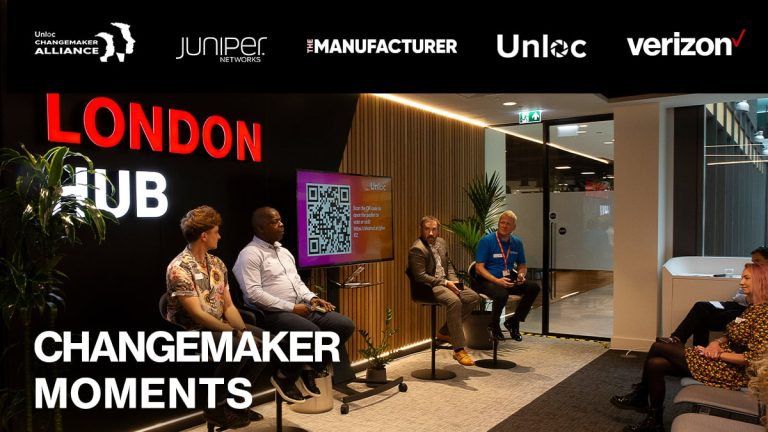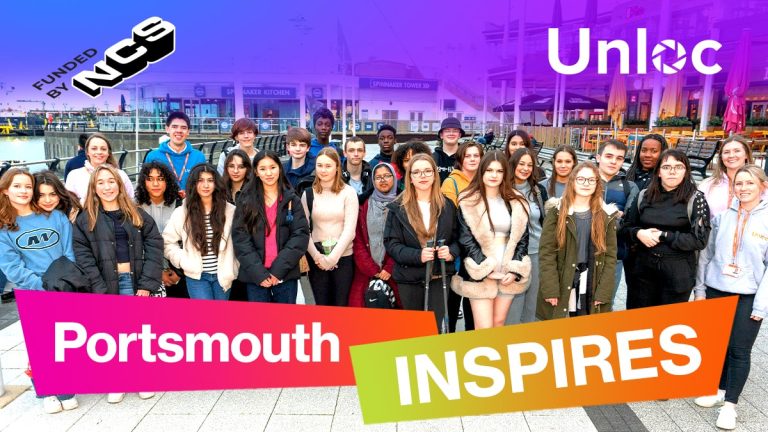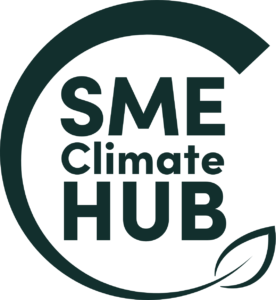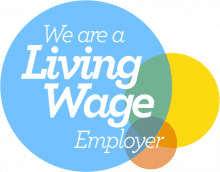
.
This year’s 2024 Young Entrepreneurs Challenge was extra special for Unloc and our partners Verizon Business, as not only did we feature our most impressive finalists yet, we also launched an all new category for young people with the initial sparks of an idea! Concepts and business ideas come in all shapes and sizes, and whilst not every idea that gets submitted may be far enough along in its development to make it through to the final, we received so many high quality applications that we couldn’t let that talent pass by without doing something to help such inspiring young people take that first step to success.
With this in mind we created a new Ignite Tier which was launched at this year’s Grand Final event in London. This new tier saw us selecting 5 lucky finalists to compete for a new Ignite Grant of £1000 / 1,200 € to kickstart their concept and ignite their business idea.
We then opened up the vote online to allow people to vote for their three winners, with each receiving the funding to help kick-start their business idea. The votes flooded in, and three winners were announced!
.

.
Georgina Lee – aged 16 from the UK
Georgina’s idea was for a portable sign language translator hoping to improve the quality of education of those who cannot verbally communicate. The £1000 would be used to create a prototype using a small camera, small speaker, and learning how the optic flow within the sensor is going to work. Georgina said:
“My company is USS (you speak sign) a non-profit organisation dedicated to the inclusion of all abilities in this world of technology. Our team consists of myself, a team leader, our research team of Maisha Maryam and Ibtehal Babar and our head of design Aliana Al Khalil. We all attend the same school and have been amazing friends for many years! Our product is a portable sign language translator hoping to improve the quality of education of those who cannot verbally communicate. Designed to improve the lives of deaf people who are nonverbal, and meets their needs in a new way by considering other aspects of sign language (body language) that was ignored by other solutions.
We were inspired by our classmates as we go to the only deaf catering school in our area to help them within our lessons because we couldn’t do much for them. They often became isolated not by choice but simply by the fact that they couldn’t communicate which we thought was unfair. We also recognised that for everyone to learn sign wouldn’t be feasible. To tackle this problem we started small by learn to sign ourselves every Thursday lunchtime! We spent time with those who are deaf of varying severity and learnt about their needs and concerns. We gathered information and started our research by looking into technology that has already been created for our fellow students.
Despite the technology existing, we have utilised it in an original way by including things such as gesture recognition, or allowing our product to include other types of sign language, increasing its versatility. We would use the £1000 in order to create a prototype to bring life to our portable translator. It requires high technology and expert in order to help us build the prototype so this is what I would invest the money into. We will also invest into buying the parts, and actually physically building this Translator in order to see the viability of It. We are looking to buy small camera, small speaker, and learn how the optic flow within the sensor is going to work. We will also invest in experts in these fields in order to better develop our own understanding of this new technology!”
.

.
Martina Criniti – aged 25 from Italy
Martina’s idea is the creation of a structure for use in the sea that can be turned into a basket with a double filtering function that keeps things contained and prevents them from spreading out. The idea aims to reduce plastics and microplastics in the coastal waters and rivers, primarily. The €1,200 would be used to conduct research and seek out researchers from both European institutions and Nationals who are interested in the advancement of this concept. I also consider large corporations. The objective is to develop a product that can be immediately placed on the market. Martina said:
“No matter what people tell you, words and ideas can change the world”.
Robin Williams
“This quote resonates deeply with me as it reflects my life, attitude, and unwavering determination. Despite criticism of my ideas, I have always believed in their potential to make a difference. That is why, I am incredibly grateful and honored to have been selected by the Young Entrepreneur Challenge for the Ignite category giving me such an unparalleled opportunity. I am an Italian law and international relations student at the University of Genoa. Last year, during my second year of university, I was inspired to tackle the issue of plastic pollution.
Through extensive research and development, I've created a sustainable solution to reduce plastic waste and protect marine life. Being passionate about environmental sustainability since my high school days, I participated in the simulations of the United Nations as a delegate and advocate general, where I learned about sustainable resources and measures to reduce plastics and microplastics in the ocean. Since that time, I have dedicated myself to solving the issue of plastic pollution. After being called in for years on technical and legislative solutions in proposing solutions and actions at the international law level by collaborating and cooperating with delegates during the UN simulations, last year, I decided to put into practice a system able to capture and collect all kind of plastic and microplastics at its source: rivers and coastal waters.
Few devices are used in these areas, creating a discrepancy in how actions are taken where plastic pollution habitually floats and its origins. The idea, which underwent different stages and modifications, aims to collect plastics and filter microplastics using a combination of mechanical and robotic installations and applications. The structure is environmentally friendly, and technological devices make it self-sustaining without external or ground-bound energy sources. The structure also includes a detector, protecting marine life and preventing their engulfment.
Furthermore, it employs AI technology, which is advantageous in the current market and helps people achieve their objectives. The goal is to reduce plastic by 2050 and achieve goals 6, 13, and 14 of the UN Sustainable Development Goals (SDGs). The idea is decisive since the structure can be used in a large-scale application, not sectoral. It can be installed in diverse areas, including rivers and territorial waters, and in diverse circumstances as it can be employed in small, medium, and large boats, for example.
The funds will be allocated toward researching and implementing the concept, ensuring its efficacy and promptness as I will organise research collaborations and introduce the project to diverse international and national organisations and companies as well as research institutions. I sincerely appreciate your support: your belief in me and in my idea has been truly empowering.“
.

.
Harry Smith – aged 25 from the UK
Harry’s idea is a device for generating energy from the waves in the sea. It’s comprised of a series of tubes with magnetic floats in, which bob up and down with wave action and form a linear alternator. This energy is then rectified and can be fed back to the grid or used locally as a generator would. The £1,000 would fund tests in the sea with the current prototype, which would help to gather data on possible output levels, which informs suitable use cases. Harry said:
“OnJoule was founded to help meet the world’s increasing energy needs by harnessing the power of the sea. I have had a life-long passion for engineering and all things marine which led me a few years ago to build myself a narrowboat from scratch to live on. While aboard of an evening, it’s impossible to ignore the lapping of water against the outside of the hull, even on quiet inland waterways. This made me think about ways of harnessing this power and doing something useful with it, consequently OnJoule came into existence.
The core technology behind OnJoule is a series of light floating magnets within a much heavier floating platform. As a wave passes the light magnetic floats bob up and down significantly more than the heavy platform, which causes relative motion, which can be harnessed into electricity. Unlike existing wave energy technologies it requires no costly infrastructure, and has no wearing parts, so can be at sea for an extended period of time. As the technology is modular it suits multiple sizes of application, from something small enough to be rapidly deployed as a replacement for a petrol generator through to grid level infrastructure.
OnJoule is in its infancy currently and so the prototype of the technology is relatively crude and small, and not yet suitable to reveal to the world! The next stage for the business is to develop this prototype and refine the technology, to increase efficiency and by the end of the year have something that can be demonstrated publicly to promote wave power as a viable addition to renewable technologies, test the technology in real world conditions and use it to demonstrate to investors to raise a pre seed round of funding.
The grant money is going to be incredibly useful to spend on the development of this prototype- it unlocks the next stage of product development and enables the purchase of materials to prototype with, which is crucial with any hardware based start up. My last start up, HausBots, who make wall-climbing robots, was started in a similar way- use competition and grant money to build a basic prototype to demonstrate to investors, raise investment then use that money to build a truly great product for customers to use!
We all have the capacity to build a better future for humanity, and as an engineer I see it as my duty to at least try to build things that can help to solve some of the massive problems the world faces. The need for energy generation is only going up, so our ways of generating it need to become ever greener to cope, which requires ever more innovations such as OnJoule.”
Our three Winners have some brilliant concepts to unleash upon the world, and thanks to the new Ignite funding it will allow them to progress their ideas – and help make their dreams a reality. Watch this space!








